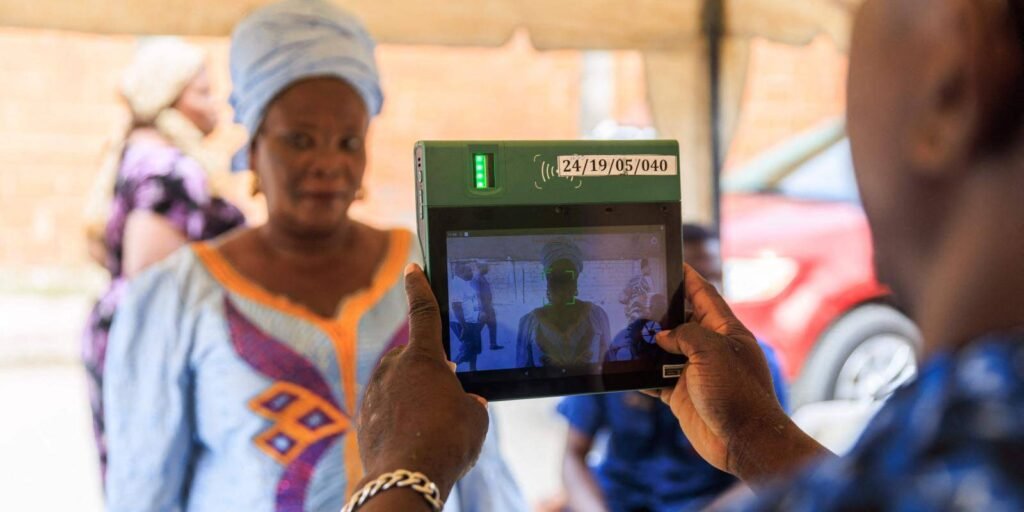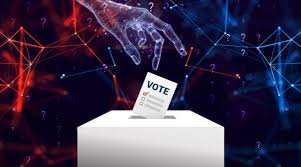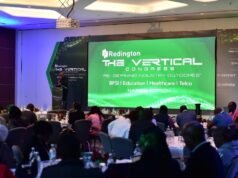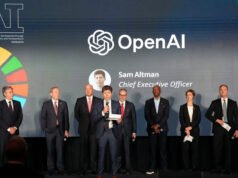In a noteworthy technological stride, Abuja-based IT firm SoftSmart Enterprise Solutions has officially launched a system designed to boost transparency and trust in Nigeria’s electoral process. The company says its solution delivers real-time result collation, powered by a blend of artificial intelligence (AI) and optical character recognition (OCR) technologies, with the aim of improving how election results are gathered and validated. According to the company’s Managing Director, the system offers a “robust, visible chain” from polling unit to national tally, marking a potential shift in how Nigerians follow and trust election outcomes.
Table of Contents

What the tech system offers
SoftSmart explains the system has three core modules:
- Live image capture at polling units: Using smartphones or tablets, agents photograph result sheets and upload them directly into the system. These images are processed via OCR so that handwritten or printed text becomes machine-readable.
- Automated anomaly detection: The AI engine compares incoming data with expected patterns (historical turnout, past polling unit performance, party polling history) and flags irregularities — for example, unusually high vote counts at a given unit or a mismatch between agent-reported and system-detected figures.
- Transparent dashboard and public interface: Results appear in near real-time on a dashboard visible to election management bodies, political parties, and the public. The firm says this interface helps “reduce speculation and build confidence” in how results come in and are verified.
The MD emphasised that the system is designed to work offline at the polling station level — storing images locally when connectivity is weak, and then synchronising when a network becomes available. That feature, they say, is particularly significant for rural or poorly-connected areas of Nigeria.
Why it matters in Nigeria’s election context
Transparent, timely result collation has long been one of the sticking points in Nigeria’s elections, often leading to distrust, delayed announcements and legal contests. By offering a system capable of capturing data directly from the ground and processing it automatically, SoftSmart is positioning its offering as a potential solution to some of these challenges.
For example, academic research highlights how increasing the use of digital tools in election management can reduce the risk of human error, manipulation and misreporting. Moreover, Nigeria’s National ICT Policy already emphasises the role of information technology in enhancing governance, accountability and citizen trust.
From my own observations during past election cycles, one of the recurring complaints has been the lag between polling unit closing and results reaching national tallying centres. If the SoftSmart system functions as advertised, it could cut that lag significantly — thereby reducing windows of speculation.

Opportunities and caveats
The introduction of this kind of system opens up several promising opportunities — but also surfaces important caveats that stakeholders must keep in view.
Opportunities
- Faster public access to results: With live uploads, citizens, parties and observers can monitor progress in real time rather than waiting for intermediaries.
- Greater detection of unusual patterns: AI anomaly detection means that outlier data (which might hint at manipulation) becomes immediately visible — giving election bodies the chance to intervene earlier.
- Inclusive coverage: The offline-capable design means even remote polling units can feed into the system without waiting for perfect connectivity — a long-standing challenge in many Nigerian elections.
- Increased confidence and legitimacy: When results are publicly visible and traceable, the perception of fairness improves. That matters not just for elections but for the broader democratic process.
Caveats
- Technology literacy and training: The best system in the world still depends on local agents being able to capture images, upload data and troubleshoot minor connectivity issues. Without proper training, the rollout may falter.
- Infrastructure constraints: Although the offline mode helps, polling units still rely on power and basic network capability. In extremely remote or insecure areas, these may still be limiting factors.
- Data integrity and security: Digitising sensitive election data opens up risks (cyber-attack, data tampering, unauthorized access). Robust encryption, audit trails and independent oversight are essential.
- Acceptance among stakeholders: Political parties, local election officials and citizen observers must buy into the system. If even one major actor refuses to recognise its output, its value diminishes.

What comes next
SoftSmart says the system is ready for deployment ahead of upcoming elections, and the company is now in talks with both the Independent National Electoral Commission (INEC) and several state governments to pilot the technology in selected constituencies. The hope is that after a successful pilot, it could scale across all polling units in Nigeria.
Observers will watch carefully how the system performs in live conditions: its speed, reliability, uptake among field agents, and how well anomaly detection flags legitimate versus spurious data. If it performs well, it may set a new benchmark for election transparency in Nigeria — and potentially invite adoption in other African countries facing similar challenges.
For citizens like you and me, the potential is clear: to know earlier how votes are being counted, to monitor the process for fairness, and to reduce the suspense of waiting — often in uncertainty — for election outcomes. But as with all technological solutions in the electoral space, the human factor remains critical: the agents in the field, the reaction of oversight bodies, the willingness of stakeholders to engage, and the integrity of the systems around it.
For now, SoftSmart’s real-time AI-powered system may well be a promising chapter in Nigeria’s journey to more transparent elections — one that we as citizens should follow closely, participate in, and hold accountable.
Join Our Social Media Channels:
WhatsApp: NaijaEyes
Facebook: NaijaEyes
Twitter: NaijaEyes
Instagram: NaijaEyes
TikTok: NaijaEyes




